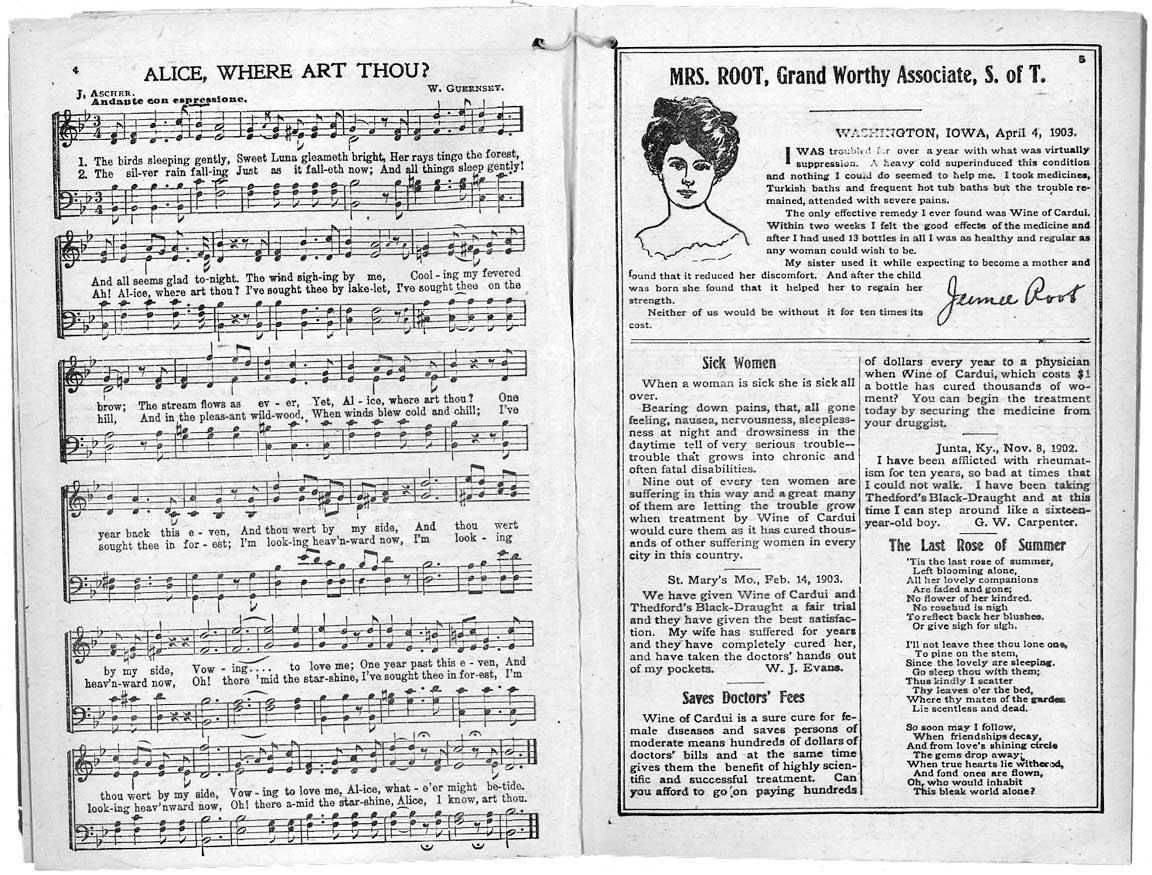See
Dr. Grace Feder Thompson's
letter appealing for patients; Dr. Pierce's
medical empire; Lydia
E. Pinkham's fabulously successful
vegetable compound & trinkets &
publications; Dr. E. C. Abbey's The Sexual System and
Its Derangements (1882); Dr. Young's rectal
dilators; Orange
Blossom medicine; ad for Ergoapiol (1904),
an abortion substance; and Lysol douche liquid
ad, 1948 (U.S.A.)
YOUR
remedies for
menstrual period pain and problems. See
more remedies here.


|

"The 20th
Century Song Book"
(menstrual, kidney &
liver problems, constipation
& bowels, tiredness,
indigestion, colic, colds,
chills, fever, childbirth,
rheumatism, arthritis,
leuchorrhea, dizziness, pain,
headache, "female weakness,"
etc.)
Chattanooga Medicine Company,
U.S.A., 1904
Complete booklet, 32 pages plus
covers
|
Below:
Pp. 4-5. Read the lyrics of the
first of the sad songs
that populate this booklet that
advertises medicine that's
supposed
to keep you alive. It may simply
be typical of the sentimental aura
of the era but it seems at odds
with the purpose of the text,
saving people. But witnessing
death was common then and maybe
the songs reflect a familiarity
with it.
Drew Faust, the president of
Harvard (2008), greatly increased
my understanding of these songs
through her exlanation of the Good Death
in her fabulous This Republic
of Suffering: Death and the
American Civil War (Knopf, 2008)
.
Several of the songs are hymns.
Lacking radio and recorded music,
people of the time often played
instruments and sang at home,
in social organizations (many of
the pictured ladies were members
of major organizations) and in
church. Until the phonograph,
the only non-musical instrument
source of music was the music box,
and 18th-century French
aristocrats danced to it.
I don't know
what
S. of T. was but the fact
that its initials were used means
that it was well known enough to
the readers of this booklet.
Membership in such organizations
was much higher then than now.
|
 |
© 2008 Harry Finley. It is illegal to
reproduce or distribute work on
this Web site in any manner or medium
without written permission of the author.
Please report suspected violations to hfinley@mum.org
|